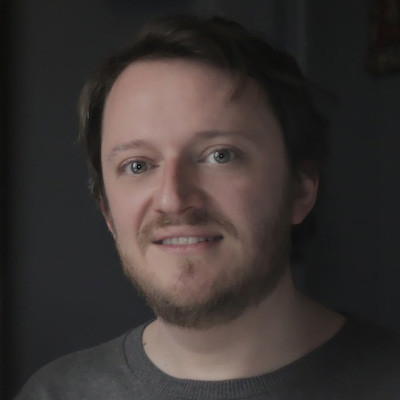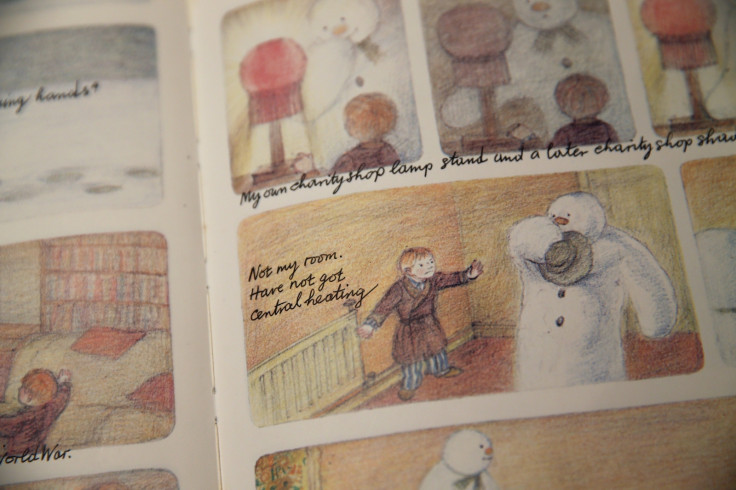Gamechangers: Dan Kieran's Unbound publishing revolution sets sights on film and TV crowdfunding
In 2011, Dan Kieran launched a new model of publishing that he believes is the "Google of books": a big ambition that was born while he was clearing the basement of an accountancy firm in Bognor Regis for minimum wage.

Kieran ditched much of his formal education in favour of what he casually describes as a wild youth – "you know, fighting and some drugs" – and instead became a young, successful author.
He sold hundreds of thousands of books, including Crap Towns, a Sunday Times bestseller and phenomenon that won him appearances on the Today programme.
But after the financial crash of 2008, his world changed as "the avaricious intentions of Amazon became apparent". From earning advances of about £30,000, he was being offered £3,000. Or nothing.
So he lost his livelihood and, with his formal education amounting to a C in A-level English, things looked grim. He found himself taking minimum wage jobs to support his family and puzzling over why, having achieved his goals in life, he didn't have a car, a house or any prospect of any income.
Which brought him to Bognor Regis and basement clearing when, during a lunch break on the beach, he realised his biggest problem was he couldn't reach his audience of readers. He'd sold books to them through intermediaries and had no idea who they were or how to reach them.
"There weren't millions but there were thousands who would buy a book I wrote if they knew it existed. So I saw that someone had to build a platform for an author to connect with their audience directly and have a relationship with them," he says.
He went to work with two business partners and they soon realised the platform also had to be a publisher. Kieran says: "So you go from being a creator to a curator: you can control the content you share with your audience and you can make money directly."
Breaking publishing conventions
An author uses the Unbound website to set out their stall and describe the book they want to write, and anyone who thinks it should be written can pledge money to fund it to being published. Once you reach the target amount (about £10,000) the costs are covered, the book is published and sales begin through traditional routes. The profits are split between Unbound and the author.
"Just this morning an author has taken a pledge for £1,000 for a dedication in the book," says Kieran. "If that book was on Amazon he'd only be able to spend the price of the book which is, on average, about £5."
And the person who pledges gets a share of the profit if the book is a hit, right? Er, no. Apparently only financial journalists ask this question. "The FSA rules are a nightmare," he explains. The investor gets the "warm, fuzzy feeling" of having supported something they believe in. I wonder if that is a feeling that might get tired? He isn't sure. But so far, it is working.

He says: "We've funded 50 books and have published 40. We're doing about eight a month. We're about to launch a book by Raymond Briggs, author of The Snowman."
And the beauty of the model is it supports specialised and quirky ideas if an audience is out there.
He is most proud of The Wake by Paul Kingsnorth – the story of the resistance of the invasion of 1066 written in its own language. It's best read out loud. So, perhaps unsurprisingly, all the mainstream publishers turned it down.
But Unbound found it had 400 supporters and it ended up being shortlisted for the Man Booker Prize. Pretty good for a book in no known language.
An extraordinary opportunity
The future, Kieran believes, is about creative people being able to earn money and this is what Unbound is about. Carving a third way between a traditional publisher or self-publishing which, Kieran says, is "a bit like cutting your own hair - you might be a genius and get away with it but in 90% of cases an editor will make it better and marketing is still very hard".
He says: "My dream is that we'll have the ability to help authors release their own money through the site using the tools to market themselves. We want to give them more control."
Noble intentions. Though the model doesn't address the Bognor Regis beach problem of authors, established or not, being unable to access advances that give them time to write. However, it does offer a way to connect and build their own support base and, hopefully, build a sustainable career in writing. But those minimum wage jobs are still going to be part of life for many.
That said, the idea is there and if not yet profitable, Unbound is still thriving, with plans to rollout into American cities and extend beyond books – for example into film. "Can we crowdfund TV shows? Why not? It is an extraordinary opportunity."
Christine Armstrong is a contributing editor of Management Today, author of Power Mums (interviews with high-profile mothers) and founder of www.villas4kids.com
She can be found on Twitter at @hannisarmstrong
© Copyright IBTimes 2025. All rights reserved.






















